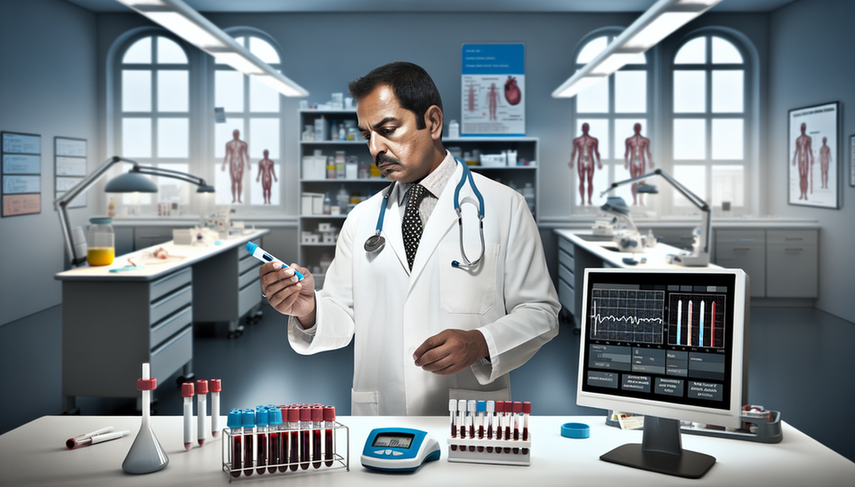Diagnosis of Type 2 Diabetes: Laboratory Tests and Criteria for Fasting Blood Glucose, HbA1c, and Glucose Tolerance

Type 2 Diabetes Mellitus (T2DM) is a chronic disease that poses a significant challenge to public health worldwide. Early diagnosis is crucial to prevent long-term complications. The diagnostic criteria have evolved over time and currently rely on the measurement of fasting blood glucose, the HbA1c test, and glucose tolerance. These methods allow for the identification of individuals at risk and the establishment of an appropriate management plan.
The diagnosis of T2DM is based on the detection of elevated blood glucose levels. Fasting blood glucose is a simple and widely used test, with a value equal to or greater than 126 mg/dL indicating diabetes. The HbA1c test, which reflects the average blood glucose over the past two to three months, is another important criterion; a value equal to or greater than 6.5% confirms the diagnosis. Additionally, the oral glucose tolerance test, which measures the body's response to a glucose load, is useful for identifying cases of diabetes and prediabetes [1].
Risk factors for the development of T2DM include obesity, physical inactivity, hypertension, and a family history of diabetes. Tools such as the Diabetes Risk Score help identify individuals at high risk of developing the disease, facilitating preventive interventions [2]. Furthermore, the assessment of associated complications, such as diabetic kidney disease, is essential for comprehensive patient management [3].
In conclusion, the diagnosis of Type 2 Diabetes Mellitus is based on well-established criteria that include fasting blood glucose, HbA1c, and glucose tolerance. Early identification of risk factors and the implementation of prevention strategies are fundamental to reducing the burden of this disease. Ongoing research and updates to diagnostic criteria are essential for improving health outcomes in patients with T2DM.
Referencias
- [1] Tests of glycemia for the diagnosis of type 2 diabetes mellitus.
- [2] The diabetes risk score: a practical tool to predict type 2 diabetes risk.
- [3] Diagnostic challenges of diabetic kidney disease.
Created 2/1/2025
